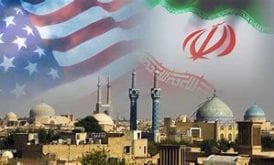iranintl – The limited responses from Iranian officials to the US and UK’s attacks on Houthi targets in Yemen have largely consisted of typical rhetoric from the regime.
So far, Iran’s Foreign Ministry Spokesman Nasser Kanaani has provided the most “critical” response to the Western air strikes. He strongly condemned the military action and claimed that they only divert attention from the “crimes” in Gaza and “have no result other than fueling insecurity and instability in the region.”
In a reaction that can be evaluated as relatively mild, Iran’s Foreign Minister Hossein Amir-Abdollahian wrote on X that Houthis are committed to maritime and shipping security in the region.
Since mid-November Iran’s Yemeni proxies have launched dozens of missile and drone attacks against international commercial vessels in the Red Sea, after the Supreme Leader in Tehran called for a blockade of goods to Israel.
“Instead of a military strike on Yemen, the White House should immediately end all military and security cooperations with Tel Aviv against the people of Gaza and the West Bank,” stated Amir-Abdollahian, adding that only then, security will be restored across the region.
Iran’s Supreme Leader Ali Khamenei and top IRGC commanders have not yet made any comments on the strikes.
Likewise, state-sponsored media in Iran have also provided limited reporting on the events in Yemen, mostly repeating stereotypical statements made by the Islamic Republic, Houthi officials, and Tehran’s allies in the region.
IRNA, the Iranian state news agency, covered the condemnation of the attacks by Syria, Oman and Iraq’s Hezbollah, a Tehran-backed militant group.
In an article released on Friday, IRNA called the US and UK airstrikes against Houthi targets “the escalation of tensions by cowboys,” warning that the offensives “can further complicate the spiral of instability in the region and increase the risk of expanding the war.”
Other state-sponsored and military-affiliated news agencies in Iran such as Fars, Mehr, and Tasnim, have adopted a similar stance by reiterating the familiar “the enemy will be conquered” rhetoric while avoiding any straightforward pledge regarding the Islamic Republic’s direct interference in support of Houthis.
Tabnak news website, reportedly owned by Mohsen Rezaei, a former IRGC commander, conducted an interview with Heshmatollah Falahatpisheh, a former lawmaker. Falahatpisheh, who once served as the head of the National Security and Foreign Policy Committee of the Iranian parliament, claimed that Saudi Arabia greenlit the recent attacks on Yemeni Houthis.
Citing Saudi Crown Prince Mohammed Bin Salman, Falahatpisheh stressed that Riyadh is still willing to normalize relations with Israel despite the war in Gaza.
Relatively independent media in Iran, nonetheless, can be said to adopt a more analytical approach toward the escalation of the tensions in the region. KhabarOnline news website predicted on Saturday that the Islamic Republic will not enter the war as it is “mired in complex internal issues” that it has yet to resolve.
The tension and conflict in the Red Sea will continue “on a normal, and not very heavy, scale,” added the report by Khabaronline, further noting that the US, Britain, and NATO will avoid a full-scale, long-term, ground war against Houthis as they believe it will benefit Russia and China.
Meanwhile, Fereydoun Majlesi, a former Iranian diplomat, said that the recent strikes in Yemen were predictable because targeting commercial vessels in the Red Sea affected a large variety of players across the region and the whole world.
“The Red Sea is not just a cargo route for Israel’s port of Eilat, but a transit route for oil and other commodities to go through the Suez Canal,” Majlesi told Rouydad24 news website, adding that US President Joe Biden has been under the pressure of the Republicans to respond to the Houthis.
The most controversial stance among Iran’s relatively independent media belonged to Donya-e-Eqtesad daily which covered the attacks against the Houthis under the headline, “The US Sealed Yemen’s Fate.” Kayhan daily, the regime’s most uncompromising media outlet, severely criticized Donya-e-Eqtesad’s title, saying it shows that some newspapers that serve the US and NATO’s interests are still active in Iran.
The US and UK strikes came two days after the UN Security Council passed a resolution, calling on Yemeni Houthis to stop attacks on shipping in the Red Sea immediately.
Biden issued a veiled threat to the Islamic Republic following the strikes. Asked by a reporter if he had a message for Tehran in the light of the attack, Biden said “I’ve already delivered the message to Iran. They know not to do anything.”
On Thursday, the leader of Iran-backed Houthis warned that the group is ready to respond to any “US aggression.”
We will continue “to fulfil our duties with regard to Palestine” despite the efforts by Washington and London to protect Israeli and Israel-related ships in the region, Abdul-Malik al-Houthi stressed, adding that Houthis will do “what is necessary” in the case of a “direct confrontation” with the US.
 Shabtabnews In this dark night, I have lost my way – Arise from a corner, oh you the star of guidance.
Shabtabnews In this dark night, I have lost my way – Arise from a corner, oh you the star of guidance.



